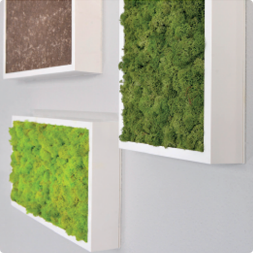Ponytail Palm
$64.00 – $134.00
Ponytail Palms are tough and nearly carefree plants requiring very little of your time to keep green – and at a much lower cost than boarding its four-legged namesake. It’s a Beaucarnea recurvata and gets its more well-known name from the characteristic leaves that spring from the top of the stem forming what looks like…you guessed it – a pony’s tail. It’s also known by some as an Elephant’s Foot Plant because in its native habitat of arid Mexico, the base of the stem becomes swollen (retaining extra moisture for the dry season) and enlarges to the extent that it can resemble…again…you guessed it, an elephant’s foot. Regardless of what you call it, it’s a durable plant that can go over a month between waterings and you can even bounce it back and forth between low light and higher light situations.
Plant Details
| Size | 2-3', 3-4' |
| Difficulty | Easy Care Level |
| Light | Bright Indirect Light |
| Pet Friendly | This plant is safe for pets |
Our 30-Day Guarantee
Description
Well, the Ponytail Palm is not really a palm (Arecaceae), although it looks like one; and it’s not a Dracaena, although it is in the same plant family – the Asparagaceae. It’s sort of a “tweener” with care characteristics of both kinds of plants:
Watering
One of the unique characteristics of the Ponytail Palm is the bulging base of the stem (or caudex) used by the plant for storing water giving this plant one of the longest watering interval requirements in the interior foliage biz. For the record, it prefers its root zone on the dry side; so make sure the soil dries out between waterings and then wait until it’s really dry before you water it again. See our watering guide for more information.
Light
This is where it differs the Dracaenas, which usually can tolerate some low and moderate light conditions – the Ponytail needs a good dose of light and to keep it growing and it’ll need to be situated by a south, east, or west window. You can use it in an interior part of the house or office, but it won’t work as well – or you could rotate its position seasonally if you’re so inclined. It’s a pretty tough plant able to adapt in different light, but, always side on the ‘more light is better’ side.
Nutrition
The Ponytail will not need to be fed during the first 6 months after it has shipped. During this time, it will use the residual nutrients from nursery production. After 6 months, it can be fed quarterly with a complete fertilizer formulated for interior plants. Please refer to our nutrient guide for details.
Cleaning
Unlike a pony’s tail, the leaves of this plant are not silky soft – quite the opposite. They have tiny serrations on the leaf margins and stroking the leaves against the grain can cause some irrigation and even a cut – so be careful. If your Ponytail gets dirty, you can pull the leaves gently with a towel soaked in light soapy water and it should do the trick. However, don’t be afraid to pop this guy in the shower or outside for a good hose-down – it can handle it.
Pruning
Ponytails are cultivated with one main stem in a single pot and will sometimes have multiple “heads” – or terminal stems with leaves on them. Ours are single stem and single head, so there’s no pruning necessary at the stem level. Sometimes leaves can get brown tips or brown out completely. In this case, we recommend removing the whole leaf at the stem. You can, however, prune off brown tips with sharp scissors.
Bugs
Mealybug, scale and mites – these are the rare culprits hitching a ride on your Ponytail Palm. Like most of our other offerings, a clean plant is a happy plant; so, keep it clean. Look for the little white cottony mealybugs at the base of the leaves and on the stems; mites will hide on the bottom side of the leaves and produce webs. If you see either of these, break out the spray bottle with a light soap solution and spray & wipe them daily ’til they’re gone. Scale insects can be plucked off one by one.
Trouble
In good light, this plant will not give you any trouble – provided you don’t overwater it.





















Beautiful plants, awesome customer service. Sue is the best!
Thanks so much! We’re so glad you’re happy with your new green friend!
Sue
Prompt, healthy, comprehensive care instructions
Thank you! We are here to help if you have questions going forward.
Sue
Gorgeous, big and healthy plant. Well shipped and can’t sooner than expected.Thank you so much for exceeding all expectations.
You’re very welcome and please let us know if you have any questions going forward. The ponytails are one of my favorites!
Thanks – Sue